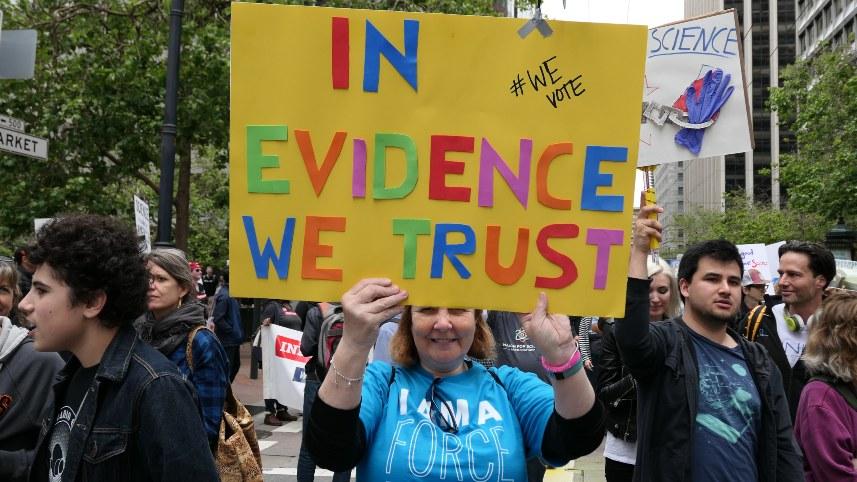Americans’ confidence in science was unshaken by the Trump administration’s attacks on scientific expertise, continuing a six-decade-long pattern in which Americans are more appreciative of than apprehensive about science and technology, according to a new study based on a series of national public opinion surveys. NCSE collaborated on the study.
Trump’s attacks on scientific experts — exemplified by his criticism of Anthony Fauci, former director of the National Institute of Allergy and Infectious Diseases — reflected the increasing partisan polarization in the United States. At the same time, the COVID-19 pandemic made the question of scientific expertise more salient to many Americans.
“The proportion of Americans with a low level of trust in scientific expertise rose from 3 percent in 2016 to 13 percent in 2020,” said lead researcher Jon D. Miller of the Institute for Social Research at the University of Michigan. “But that increase was more than matched by a rise in the proportion of Americans with a high level of trust in scientific expertise, from 23 percent to 58 percent.”
The views and actions of the Trump administration with regard to such topics as climate change, environmental protection, and the COVID-19 pandemic were widely condemned as a Republican war on science. But even among conservative Republicans, the proportion with a high level of trust in scientific expertise rose more between 2016 and 2020 than the proportion with a low level of trust.
“Apparently a lot of Americans just didn’t have strong feelings about the trustworthiness of science in 2016,” explained co-author Glenn Branch, deputy director of the National Center for Science Education. “But in 2020, with the pandemic in full swing, they were forced to take a stand — and the majority of them took the side of science.”
The study’s analysis of changes between 2016 and 2020 was conducted against a background of data from a series of national public opinion surveys starting in 1957. These surveys show that Americans consistently express a high degree of appreciation of the benefits of science and technology and a relatively low degree of apprehension about their dangers.
In 2016, interest in science and technology, college-level study of science and technology, and level of education were the strongest predictors of appreciation of the benefits of science and technology — with trust in scientific expertise running a close fourth. Fundamentalist religious belief was by far the strongest predictor of apprehension about the dangers of science and technology.
The situation was similar in 2020, except that civic scientific literacy became a stronger predictor of appreciation of the benefits of science and technology, suggesting that a basic level of scientific understanding enabled people who were previously uninterested in science and technology to come up to speed with regard to current events, especially the COVID-19 pandemic.
“The Trump administration’s contempt for scientific and technological expertise was rightly a cause for concern, but our study shows that the American public was by and large unaffected,” Miller commented. “But it will be necessary to continue to improve the public’s understanding of science and technology to ensure that it is equipped to weather any future storms.”
The study, “Citizen attitudes toward science and technology, 1957–2020: Measurement, stability, and the Trump challenge,” was published in the journal Science and Public Policy. Besides Miller and Branch, the authors are Belén Laspra and Carmelo Polino of the University of Oviedo, Robert T. Pennock of Michigan State University, and Mark Ackerman of the University of Michigan.


